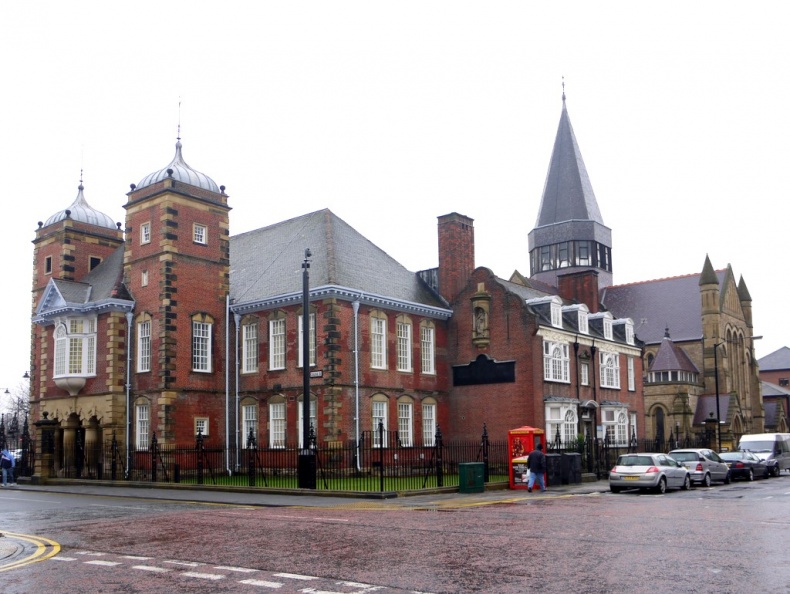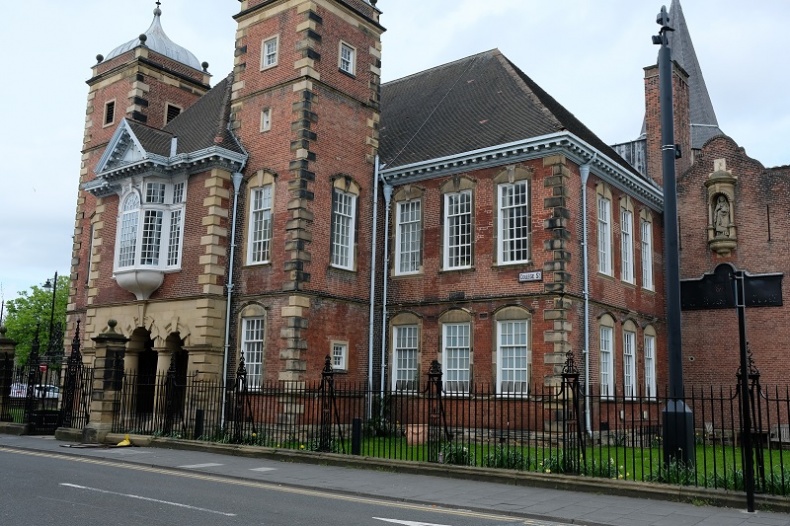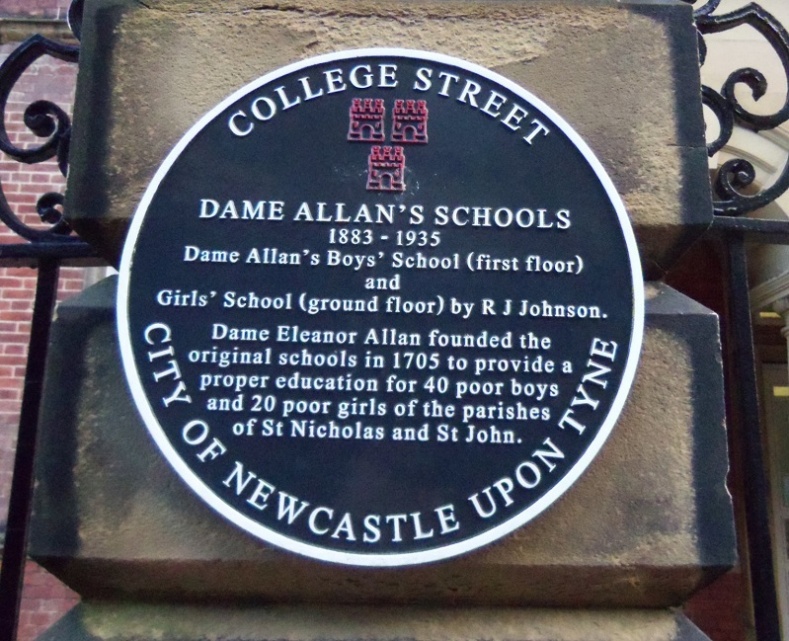


Allan, Dame Eleanor
d. 1709
Founder of independent schools for boys and girls
Dame Eleanor Allan (d. 1709) is best known for founding the school which bears her name in Newcastle. She was the widow of tobacco merchant and landowner, John Allan, and the daughter of a Newcastle goldsmith. Little is known about her life or personality.
Tobacco smoking was a relatively uncommon practice at the beginning of the 17th century but grew steadily throughout the century as plentiful supplies became available from American slave plantations. We can reasonably infer that John Allan was a well-to-do member of the Newcastle merchant elite who benefited from the growth in tobacco consumption. By reputation, however, and despite the lucrative nature of the business, John Allan is said to have not been a very good businessman and that, when he died, she and her only son, Francis, took over the business and made it a considerable success. In 1700, they bought a 130-acre farm in Wallsend and rented it out for income.
Eleanor’s philanthropy began in earnest following the death of her son Francis who never married. Eleanor was a committed Christian and began making plans to establish a school to instil Christian values in poor children while helping them become literate and improve their job prospects. The Charity School of St Nicholas was founded by Dame Eleanor by deed of gift of 20 February 1705, which endowed the income from a farm of 130 acres at Wallsend for its support. A year after her death on 21 January 1708, the school was formally opened for 40 boys and 20 girls. The location of the original premises of the school is not known but, in 1786, Newcastle Corporation provided a site in Manor Chare for a new building. It remained there until 1821 when it moved to the Clergy Jubilee School in Carliol Square. In 1860, the Clergy Jubilee School was turned into a ‘trade school’ and, shortly afterwards, the St Nicholas Charity School was provided with separate buildings in Rosemary Lane. In 1877, with the assent of the Charity Commissioners, the school was completely reorganised as Dame Allan's Endowed Schools with a board of governors, a Grammar School curriculum, and permission to admit fee-paying pupils. A new building was erected in 1882 in College Street where the school remained until it moved in 1935 to its present location in Fenham.
Dame Allan’s schools today comprise a junior school, an 11-16 girls’ school, an 11-16 boys’ school, and a co-educational sixth form, with about 1,100 pupils in all. It remains solidly within the Church of England fold and true to the philanthropic values of its founder in supporting children from less well-off families with scholarships. In 2016-17, 158 scholarships were awarded on the basis of educational merit and potential. A further 120 pupils benefited from a means-tested reduction in fees of up to 100% at a cost of £1,103,527. Dame Eleanor Allan might well be proud that 310 years after her passing, the schools that bear her name “are committed to their Anglican foundation”, seeing “their Christian mission in providing education to all of their pupils, regardless of their own beliefs and circumstances.” To memorialise her contribution in founding the school, there is a statue of her set high in a wall of the headmaster’s house at the school’s former College Street premises. It is the only statue of a woman in Newcastle apart from those of Queen Victoria. A commemorative plaque was added nearby in 2010.
References
Henderson, T. (2013) History of Dame Allan schools commemorated. Available here (Accessed: 25/07/2018).
Hutchinson, K. (2015). Secret Newcastle, Stroud: Amberley Publishing.
Dame Allan's Schools (2018). Heritage. Available here (Accessed: 06/09/18).
World Health Organisation. (2018). History of tobacco. Available here (Accessed: 25/07/2018).